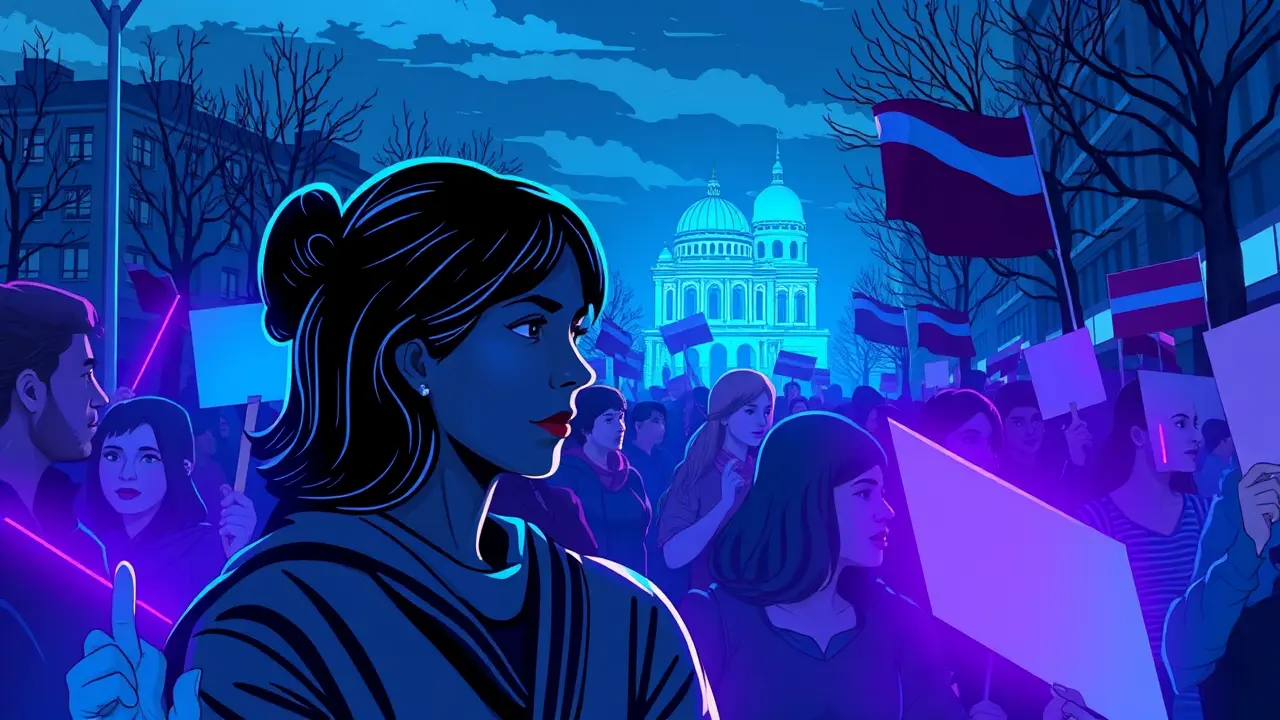
Politicshuman rights
Latvian MPs Vote to Withdraw from Women's Violence Treaty.
AN
Anna Wright
3 days ago7 min read
In a move that has sent shockwaves through the international human rights community and galvanized thousands of citizens into protest, Latvian Members of Parliament have cast a decisive vote to initiate a withdrawal from the Council of Europe Convention on Preventing and Combating Violence against Women and Domestic Violence, a landmark treaty more widely known as the Istanbul Convention. This decision, taken in the hallowed halls of the Saeima, transcends mere political procedure; it represents a profound ideological schism, pitting a resurgent wave of conservative nationalism against the hard-won, foundational principles of gender equality and state-accountability for the protection of its most vulnerable.The scenes outside the parliament building were a powerful testament to the high stakes, as a diverse coalition of several thousand demonstrators—comprising survivors, activists, families, and allies—gathered not merely to object, but to bear witness and to mourn what they perceive as a catastrophic retreat from a decades-long struggle for basic bodily autonomy and safety. Their placards, etched with slogans echoing the convention's core tenets, and their chants, which filled the Riga air with a mixture of defiance and despair, served as a stark, human counterpoint to the abstract legal arguments being debated inside.The parliamentary vote, however, is not the final act in this political drama; the constitutional baton now passes to President Edgars Rinkēvičs, who stands at a critical juncture, vested with the authority to either promulgate the law, sending Latvia on a path to become the first nation to fully depart from the convention, or to return it to the legislature for renewed deliberation, a move that would signal deep reservations and ignite a fresh political firestorm. The arguments deployed by proponents of withdrawal often cloak themselves in the language of sovereignty and traditional family values, alleging that the convention's very definitions of gender, embedded in its sophisticated framework, propagate a 'gender ideology' that threatens the social fabric—a rhetorical strategy that has found fertile ground not only in Latvia but across other Central and Eastern European nations where the convention faces similar, albeit less advanced, opposition.Conversely, human rights organizations like Amnesty International and local groups such as Marta Centre have decried the vote as a catastrophic betrayal, pointing to the convention’s unparalleled role in establishing a comprehensive, legally binding infrastructure that compels states to fund shelters, provide specialized support services, ensure effective prosecution of perpetrators, and, crucially, to collect robust, standardized data—a lifeline for evidence-based policy that would now be jeopardized. The potential consequences of this withdrawal are not merely symbolic; they are terrifyingly tangible, risking the erosion of specialized victim support mechanisms, the weakening of legal protections for survivors, and the sending of a chilling message that violence against women is, in the eyes of the state, a secondary issue, a private matter rather than a grave societal ill demanding a coordinated, pan-European response.This moment in Latvia must be understood within a broader, alarming continental trend, a deliberate unravelling of the international consensus on women's rights, where the Istanbul Convention has become a proxy in a culture war, its very name a political lightning rod. The president's impending decision will thus resonate far beyond the borders of this Baltic nation; it will be a bellwether for the future of feminist foreign policy and the durability of human rights instruments in an era of rising illiberalism. As the world watches, the question hangs heavy: will Latvia choose to stand with the vulnerable, or will it turn its back on a framework designed as the continent's most powerful shield against the scourge of gendered violence?.
#Latvia
#treaty withdrawal
#women's rights
#protests
#president
#violence protection
#featured
Stay Informed. Act Smarter.
Get weekly highlights, major headlines, and expert insights — then put your knowledge to work in our live prediction markets.
Related News
© 2025 Outpoll Service LTD. All rights reserved.












